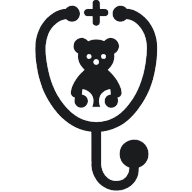How Can You Involve a Child's Family in Their Healthcare Plan?
To understand how pediatric professionals can effectively involve families in a child's healthcare plan, we’ve gathered insights from a Physician Assistant and a Medical Director. While they emphasize the importance of showing long-term health impacts and establishing family health conferences, we’ve also included additional answers to provide a well-rounded perspective. From integrating family feedback to encouraging participation in care routines, here are several strategies that can make a significant impact.
- Show Long-Term Health Impact
- Establish Family Health Conferences
- Integrate Family Feedback
- Utilize Family Medical History
- Schedule Regular Progress Meetings
- Offer Educational Workshops
- Encourage Participation in Care Routines
Show Long-Term Health Impact
The key to getting family involved in a child's healthcare plan is focusing on long-term effects and consequences. In the short term, following the advice of a physician or other medical professional can feel overwhelming and not quite worth it. Dietary changes and daily medicine take significant time to work, leaving parents feeling like they are making the child suffer for no good reason.
To counter this, I like to create and provide potential longitudinal case studies of the patient.
Showing family members the impact of childhood health interventions in adulthood really drives home the point.
For example, a child whose medical adherence is intermittent may grow up to have additional health problems, and bouts of illness will hold them back in many ways. They're more likely to drop out of school or get poor grades. They're less likely to land a good career and may even slip into poverty.
On the flip side, a child whose health is prioritized consistently will be able to meet their full potential at every age.

Establish Family Health Conferences
Involving families in a child's healthcare plan can be deeply impactful when we focus on integrating family members into the decision-making process as active participants rather than passive observers. One effective but less commonly utilized approach is to establish a family health conference. This means getting everyone involved—the kid, the doctor, and the family—all in one place in a structured setting.
During these conferences, we can talk about what the kid wants to get better, what treatments are being considered, and how they're doing in a detailed way. It's a chance to sort out any questions, make sure everyone's on the same page about the treatment, and tweak things based on what the family thinks and worries about. This way of working together makes sure everyone's on board and ready to back the kid's healthcare plan, which makes it easier for the kid to stick to the treatment.

Integrate Family Feedback
Integrating family feedback during health strategy sessions can ensure that the healthcare plan is tailored to the child's unique needs. Families often have insights about the child's daily routine and emotional well-being that professionals may overlook. By actively listening to their concerns and suggestions, healthcare providers can create more effective and personalized care plans.
This approach fosters a collaborative environment where the family feels valued and heard. Keep the lines of communication open and prioritize family input.
Utilize Family Medical History
Utilizing family history is crucial for developing customized care protocols for a child. Understanding the genetic background and past medical issues within the family can guide the treatment and prevention strategies for the child. This information can help identify potential risks and tailor interventions accordingly.
By involving families in sharing their medical histories, healthcare providers can create a comprehensive and individualized care plan. Encourage families to provide detailed health backgrounds for better outcomes.
Schedule Regular Progress Meetings
Scheduling regular family-inclusive progress meetings is vital for keeping everyone on the same page regarding the child's health. These sessions allow healthcare providers to discuss the child's progress, address any concerns, and make necessary adjustments to the care plan. Regular meetings ensure that the family is actively involved in monitoring and supporting the child's health journey.
Through open dialogue, trust and cooperation between families and healthcare providers are strengthened. Make it a priority to set consistent meeting times.
Offer Educational Workshops
Offering educational workshops on child healthcare can empower families with the knowledge they need to support their child's health. These workshops can cover various topics, such as nutrition, mental health, and medical care, tailored to the specific needs of the child. Educated and informed families are more likely to participate effectively in the healthcare plan.
By providing these resources, healthcare providers can build a strong foundation for family involvement. Promote and facilitate educational opportunities for families.
Encourage Participation in Care Routines
Encouraging family participation in care routines ensures that the child receives consistent support both at home and during medical visits. Families can be taught simple medical tasks or routines that can be integrated into daily life, making the child feel more comfortable and secure. Involving families in these routines also helps them to understand the healthcare plan better and contribute actively to its success.
This approach builds confidence and competence in families regarding their caregiving roles. Invite families to be active participants in daily care activities.

